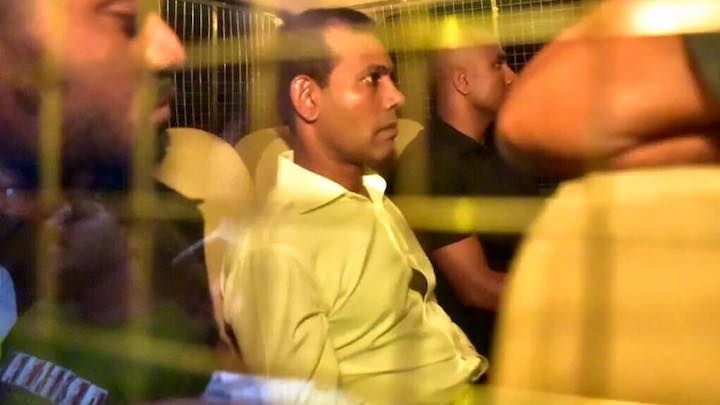Maldives ‘demanded a hostage’ for ex-president’s travel to UK
President Abdulla Yameen has backtracked on an “unconditional promise” to allow jailed former President Mohamed Nasheed to travel to the United Kingdom for medical care, and is demanding that a family member remain in Malé until he returns from medical treatment.

17 Jan 2016, 09:00
President Abdulla Yameen has backtracked on an unconditional promise to allow jailed former President Mohamed Nasheed to travel to the United Kingdom for medical care, and is demanding that a family member remain in Malé until he returns from treatment, his daughter has said.
In a Facebook post, Nasheed’s daughter Meera Laila Nasheed said her father “will not be coming to the UK” because the government had changed its stance at the last minute.
The opposition leader, who is serving a 13-year jail term on a terrorism conviction, was first told he would be allowed to travel abroad for a surgery on his spine without any conditions, said Meera, who is currently in London with her mother.
“But today he was told he could only go if he agrees to sign that someone else (who I think is better left unnamed) will be responsible for him in the Maldives whilst he is away. That means this person will have to remain in the Maldives, and basically held there till he gets back.”
Become a member
Get full access to our archive and personalise your experience.
Already a member?
Discussion
No comments yet. Be the first to share your thoughts!
No comments yet. Be the first to join the conversation!
Join the Conversation
Sign in to share your thoughts under an alias and take part in the discussion. Independent journalism thrives on open, respectful debate — your voice matters.




